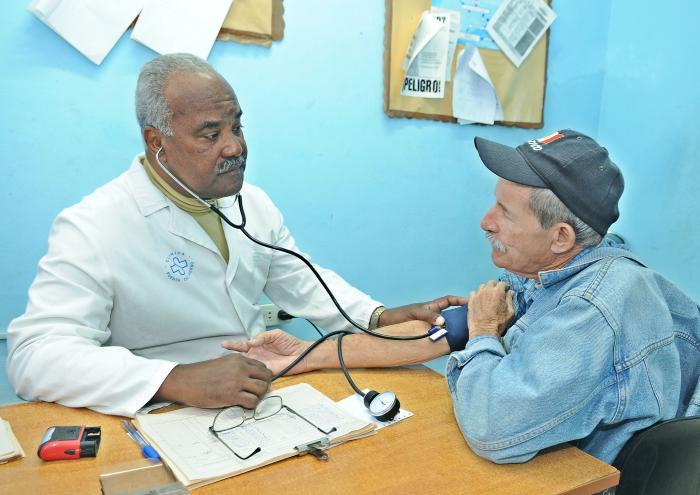
Institutions of the Biotechnological and Pharmaceutical Industries Group (BioCubaFarma) and the Ministry of Public Health carried out a clinical trial led by the National Center for Scientific Research (CNIC), which showed the effectiveness of Policosanol -the well-known PPG- as a potential coadjuvant drug to control prehypertension and grade I arterial hypertension in patients with low cardiovascular risk.
The results of this research, which allow broadening the perspectives of this Cuban product, with more than 30 years of use in the country and wide acceptance in international markets, were discussed yesterday at a meeting between the First Secretary of the Central Committee of the Communist Party and President of the Republic, Miguel Díaz-Canel Bermúdez, and experts from the health sector who work, from science and innovation, to seek answers to the main health problems affecting the Cuban population.
Arterial hypertension is precisely the main risk factor for cardiovascular diseases, which are among the three leading causes of death in Cuba and which, as non-communicable diseases with such a high impact, imply not only health challenges of great magnitude, but also in the social sphere.
According to the explanation offered by Sarahí Mendoza Castaño, CNIC's Research Director, the trial included 400 patients, divided into two strata: prehypertensive and grade I hypertensive (the latter are those classified as low risk).
After administering 20 mg of the drug daily for 12 weeks to both groups, the researcher reported that, in general, "a significant decrease in systolic (maximum) and diastolic (minimum) blood pressure values was observed. In the specific case of patients with grade I hypertension, this began to manifest itself after four weeks of treatment.
He also explained that no adverse events occurred in any patient during the course of the clinical trial, nor were the physical and blood safety indicators modified, making it "safe and well tolerated".
Although Mendoza Castaño insisted that "Policosanol is not an antihypertensive, since many more studies are needed to demonstrate this, with more dose levels and a larger population to be able to extrapolate the results", it was shown that its use is beneficial in the management of low-risk patients, as evidenced in this particular study.
The results, he said, urge us to continue studying the subject, because it is not closed, but we have a lot of research to continue on the subject.
In this regard, President Díaz-Canel instructed the scientists, taking into account the demonstrated potential and the path already started, to design a road map to expand the studies on the use of this drug, as well as its production in the country.
At the end of the meeting, which was also attended by Deputy Prime Ministers Inés María Chapman Waugh and Jorge Luis Perdomo Di-Lella, as well as the head of Public Health, José Angel Portal Miranda, and members of the Science Commission of the Communist Party of Cuba, in statements to the press team of the Presidency, the head of the Department of Non-Communicable Diseases of Public Health, Salvador Tamayo Muñiz, assured that "this product has a very high importance and perspective".
The fact that, at present, vascular damage represents in Cuba "around 40% of the mortality of the first ten causes of death, makes this a very serious issue, since the impact of arterial hypertension is high and, unfortunately, in the last 15 years, it has had a deviation towards premature mortality".
As such, he said, "any advance in the treatment of chronic diseases is significant".















